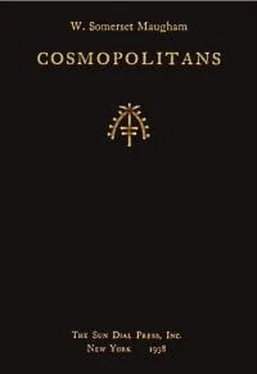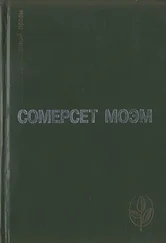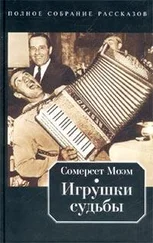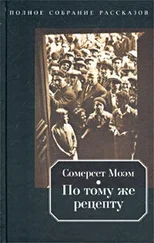Уильям Моэм - Cosmopolitans
Здесь есть возможность читать онлайн «Уильям Моэм - Cosmopolitans» весь текст электронной книги совершенно бесплатно (целиком полную версию без сокращений). В некоторых случаях можно слушать аудио, скачать через торрент в формате fb2 и присутствует краткое содержание. Город: New York, Год выпуска: 1938, Издательство: The Sun Dial Press, INC., Жанр: Классическая проза, short_story, на английском языке. Описание произведения, (предисловие) а так же отзывы посетителей доступны на портале библиотеки ЛибКат.
- Название:Cosmopolitans
- Автор:
- Издательство:The Sun Dial Press, INC.
- Жанр:
- Год:1938
- Город:New York
- ISBN:нет данных
- Рейтинг книги:5 / 5. Голосов: 1
-
Избранное:Добавить в избранное
- Отзывы:
-
Ваша оценка:
- 100
- 1
- 2
- 3
- 4
- 5
Cosmopolitans: краткое содержание, описание и аннотация
Предлагаем к чтению аннотацию, описание, краткое содержание или предисловие (зависит от того, что написал сам автор книги «Cosmopolitans»). Если вы не нашли необходимую информацию о книге — напишите в комментариях, мы постараемся отыскать её.
Cosmopolitans — читать онлайн бесплатно полную книгу (весь текст) целиком
Ниже представлен текст книги, разбитый по страницам. Система сохранения места последней прочитанной страницы, позволяет с удобством читать онлайн бесплатно книгу «Cosmopolitans», без необходимости каждый раз заново искать на чём Вы остановились. Поставьте закладку, и сможете в любой момент перейти на страницу, на которой закончили чтение.
Интервал:
Закладка:
I answered that I would meet my friend—by correspondence—at Foyot’s on Thursday at halfpast twelve. She was not so young as I expected and in appearance imposing rather than attractive. She was in fact a woman of forty (a charming age, but not one that excites a sudden and devastating passion at first sight), and she gave me the impression of having more teeth, white and large and even, than were necessary for any practical purpose. She was talkative, but since she seemed inclined to talk about me I was prepared to be an attentive listener.
I was startled when the bill of fare was brought, for the prices were a great deal higher than I had anticipated. But she reassured me.
“I never eat anything for luncheon,” she said.
“Oh, don’t say that!” I answered generously.
“I never cat more than one thing. I think people eat far too much nowadays. A little fish, perhaps. I wonder if they have any salmon.”
Well, it was early in the year for salmon and it was not on the bill of fare, but I asked the waiter if there was any. Yes, a beautiful salmon had just come in, it was the first they had had. I ordered it for my guest. The waiter asked her if she would have something while it was being cooked.
“No,” she answered, “I never eat more than one thing. Unless you had a little caviare. I never mind caviare.”
My heart sank a little. I knew I could not afford caviare, but I could not very well tell her that. I told the waiter by all means to bring caviare. For myself I chose the cheapest dish on the menu and that was a mutton chop.
“I think you’re unwise to cat meat,” she said. “I don’t know how you can expect to work after eating heavy things like chops. I don’t believe in overloading my stomach.”
Then came the question of drink.
“I never drink anything for luncheon,” she said. “Neither do I,” I answered promptly.
“Except white wine,” she proceeded as though I had not spoken. “These French white wines are so light. They’re wonderful for the digestion.”
“What would you like?” I asked, hospitable still, but not exactly effusive.
She gave me a bright and amicable flash of her white teeth.
“My doctor won’t let me drink anything but champagne.”
I fancy I turned a trifle pale. I ordered half a bottle. I mentioned casually that my doctor had absolutely forbidden me to drink champagne.
“What are you going to drink, then?”
“Water.”
She ate the caviare and she ate the salmon. She talked gaily of art and literature and music. But I wondered what the bill would come to. When my mutton chop arrived she took me quite seriously to task.
“I see that you’re in the habit of eating a heavy luncheon. I’m sure it’s a mistake. Why don’t you follow my example and just eat one thing? I’m sure you’d feel ever so much better for it.”
“I am only going to eat one thing,” I said, as the waiter came again with the bill of fare.
She waved him aside with an airy gesture.
“No, no, I never eat anything for luncheon. Just a bite, I never want more than that, and I eat that more as an excuse for conversation than anything else. I couldn’t possibly eat anything more—unless they had some of those giant asparagus. I should be sorry to leave Paris without having some of them.”
My heart sank. I had seen them in the shops and I knew that they were horribly expensive. My mouth had often watered at the sight of them.
“Madame wants to know if you have any of those giant asparagus,” I asked the waiter.
I tried with all my might to will him to say no. A happy smile spread over his broad, priest-like face, and he assured me that they had some so large, so splendid, so tender, that it was a marvel.
“I’m not in the least hungry,” my guest sighed, “but if you insist I don’t mind having some asparagus.”
I ordered them.
“Aren’t you going to have any?”
“No, I never eat asparagus.”
“I know there are people who don’t like them. The fact is, you ruin your palate by all the meat you eat.”
We waited for the asparagus to be cooked. Panic seized me. It was not a question now how much money I should have left over for the rest of the month, but whether I had enough to pay the bill. It would be mortifying to find myself ten francs short and be obliged to borrow from my guest. I could not bring myself to do that. I knew exactly how much I had and if the bill came to more I made up my mind that I would put my hand in my pocket and with a dramatic cry start up and say it had been picked. Of course it would be awkward if she had not money enough either to pay the bill. Then the only thing would be to leave my watch and say I would come back and pay later.
The asparagus appeared. They were enormous, succulent and appetizing. The smell of the melted butter tickled my nostrils as the nostrils of Jehovah were tickled by the burned offerings of the virtuous Semites. I watched the abandoned woman thrust them down her throat in large voluptuous mouthfuls and in my polite way I discoursed on the condition of the drama in the Balkans. At last she finished.
“Coffee?” I said.
“Yes, just an ice cream and coffee,” she answered.
I was past caring now, so I ordered coffee for myself and an ice cream and coffee for her.
“You know, there’s one thing I thoroughly believe in,” she said, as she ate the ice cream. “One should always get up from a meal feeling one could eat a little more.”
“Are you still hungry?” I asked faintly.
“Oh, no, I’m not hungry; you see, I don’t eat luncheon. I have a cup of coffee in the morning and then dinner, but I never eat more than one thing for luncheon. I was speaking for you.”
“Oh, I see!”
Then a terrible thing happened. While we were waiting for the coffee, the head waiter, with an ingratiating smile on his false face, came up to us bearing a large basket full of huge peaches. They had the blush of an innocent girl; they had the rich tone of an Italian landscape. But surely peaches were not in season then ? Lord knew what they cost. I knew too—a little later, for my guest, going on with her conversation, absent-mindedly took one.
“You see, you’ve filled your stomach with a lot of meat”—my one miserable little chop—“and you can’t eat any more. But I’ve just had a snack and I shall enjoy a peach.”
The bill came and when I paid it I found that I had only enough for a quite inadequate tip. Her eyes rested for an instant on the three francs I left for the waiter and I knew that she thought me mean. But when I walked out of the restaurant I had the whole month before me and not a penny in my pocket.
“Follow my example,” she said as we shook hands, “and never eat more than one thing for luncheon.”
“I’ll do better than that,” I retorted. “I’ll eat nothing for dinner tonight.”
“Humorist!” she cried gaily, jumping into a cab. “You’re quite a humorist!”
But I have had my revenge at last. I do not believe that I am a vindictive man, but when the immortal gods take a hand in the matter it is pardonable to observe the result with complacency. Today she weighs three hundred pounds.
Salvatore
I WONDER if I can do it.
I knew Salvatore first when he was a boy of fifteen with a pleasant, ugly face, a laughing mouth and carefree eyes. He used to spend the morning lying about the beach with next to nothing on and his brown body was as thin as a rail. He was full of grace. He was in and out of the sea all the time, swimming with the clumsy, effortless stroke common to the fisher boys. Scrambling up the jagged rocks on his hard feet, for except on Sundays he never wore shoes, he would throw himself into the deep water with a cry of delight. His father was a fisherman who owned his own little vineyard and Salvatore acted as nursemaid to his two younger brothers. He shouted to them to come in shore when they ventured out too far and made them dress when it was time to climb the hot vine-clad hill for the frugal midday meal.
Читать дальшеИнтервал:
Закладка:
Похожие книги на «Cosmopolitans»
Представляем Вашему вниманию похожие книги на «Cosmopolitans» списком для выбора. Мы отобрали схожую по названию и смыслу литературу в надежде предоставить читателям больше вариантов отыскать новые, интересные, ещё непрочитанные произведения.
Обсуждение, отзывы о книге «Cosmopolitans» и просто собственные мнения читателей. Оставьте ваши комментарии, напишите, что Вы думаете о произведении, его смысле или главных героях. Укажите что конкретно понравилось, а что нет, и почему Вы так считаете.










